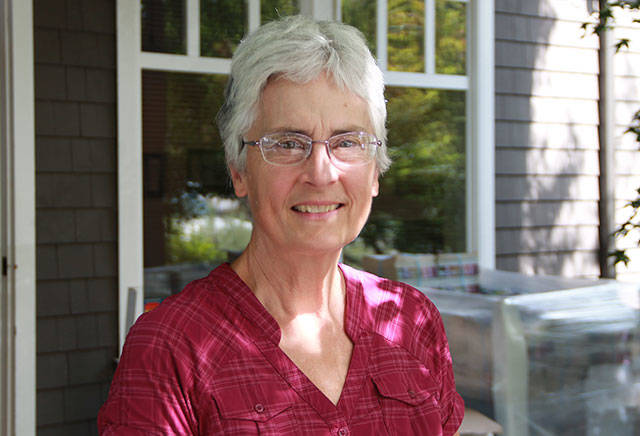In the documentary “A Concerned Citizen,” showing at 6 p.m. Tuesday, Sept. 17, at the Vashon Theatre, marine toxicologist Riki Ott reached a gloved hand into a hole dug in the sand on the banks of Prince William Sound in Alaska. It came up streaked with veins of black oil.
“This is old residue of Exxon-Valdez, 18 years later,” she said.
The film follows Ott’s work on behalf of the communities impacted by the use of chemical dispersants following the 1989 Exxon-Valdez spill and BP Deepwater Horizon disaster in 2010. It explores the lingering impacts of both events years after the fallout, as contamination endures and many who live and work in the shadow of each now suffer chronic illnesses.
Chemical dispersants are routinely deployed to break down oil released from spills into smaller droplets, reducing the scale of an accident. But those who were exposed to a dispersant widely used after Deepwater Horizon, called Corexit, reported symptoms ranging from difficulty breathing to eye irritation and rashes as much as three years later, according to a 2017 study.
Ott, who holds a master’s degree and doctorate in marine pollution with a specialty in oil pollution, noted that dispersants are oil-based solvents manufactured by the same producers creating the spills — Corexit is produced by Nalco Holding Company, a subsidiary of BP.
“If you spray an oil product on an oil spill, what happens to it? It goes up into the air, it goes down into the water column, and it goes off the surface,” she said.
Ott added that chemical dispersants don’t mitigate the spill — once the public can’t see it, she said, the oil industry considers the problem solved.
“If you disappear it off the surface, everybody lightens up. But it is not true that it makes a safe environment for people, or wildlife for that matter,” she said.
The available science on the effectiveness of chemical dispersants is inconsistent. Last year, a research team at the University of Miami found that dispersants released at the Deepwater Horizon site, at the depth of the spill to contain the oil emanating from the damaged rig, were ineffective at controlling the spread of oil. It also said that oil remained in the Gulf of Mexico months after the spewing wellhead was capped.
However, earlier this year a report from the National Academy of Sciences concluded that, after evaluating the trade-offs, dispersants remain a useful tool for oil spill response.
Ott traveled to the Gulf after Deepwater Horizon to assess the damage and said she was shocked that the official response to the disaster had not changed since Exxon-Valdez 21 years earlier, where oil dispersants were also used. In March, Ott partnered with The University of California, Berkeley Environmental Law Clinic to file a notice of intent to sue the Environmental Protection Agency for failing to maintain an up-to-date contingency plan for future oil spills. They based the suit on the agency’s own understanding of the health risks posed by dispersants as well as the need for clear strategy when confronting increasingly complicated accidents.
Ott has followed the likes of her father, Fred Ott, who joined several plaintiffs to successfully sue the state of Wisconsin in the 1960s over its use of DDT, a toxic insecticide.
Following lessons she learned as an advocate and activist, Ott developed an extensive civics curriculum to teach students how to participate in their democracy. She said that it’s critical for the next generation to lead the energy transition off of fossil fuels and hold corporations and the government accountable to the people.
“It’s a good time for civics,” she said, emphasizing that it only takes one person to make a difference. “People are realizing that civics is a part of everything that we do. If you want to fix any issue in society … you’re talking about [becoming] an engaged citizen. It’s how to work together, it’s how to make an action plan. It’s how to just do it.”
For Ott, that means starting enough momentum to effect meaningful change. She co-founded the grassroots organization MoveToAmend to advance a constitutional amendment that would end corporate personhood and reform campaign finance laws. The health harm she witnessed from oil-chemical exposures led her to create a Toxic Trespass training program as the director of ALERT, a project of the Earth Island Institute, to strengthen environmental justice leadership.
“We need to be training the young people, giving them the basic operating instructions for how to hold the three branches of government accountable,” she said, adding that she asks students the same question: “What if you woke up tomorrow morning and you pretended that you chose to be here now? What would you do differently tomorrow?”



